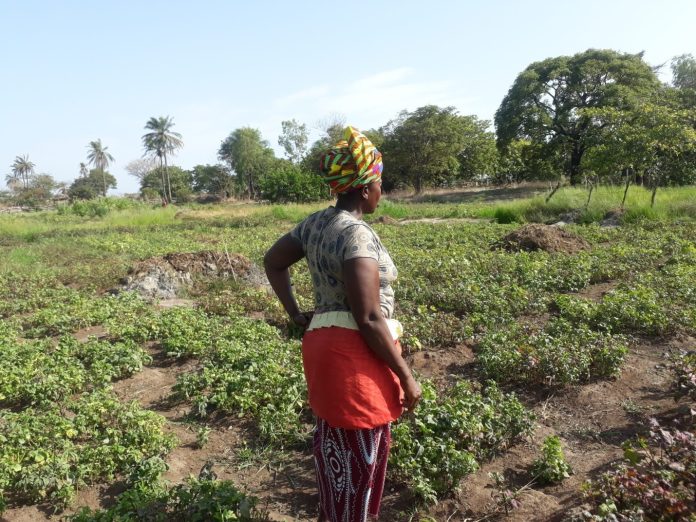By Hatab Nyang
On a rainy August morning in Gunjur Sambuya, the green stretches freely. Maize stalks rise tall beside cassava plots, and vegetable beds lie open near the market, all unfenced yet untouched. In this Gambian village, crops grow in peace, without wire, without sticks, and without fear of goats or cattle devouring them.
This rare sight is not a miracle of nature, but the result of a social pact that binds the community together. Here, the farmers plant anywhere they wish, confident that their neighbors’ animals will not trespass.
Alkalo Edrissa Touray, the village head, explained the foundation of this trust.
“Together with the Village Development Committee, we warned owners of goats, sheep, donkeys, and cows to control their animals during the rainy season,” he said. “If an animal destroys a farm, the owner pays a fine based on the damage. Because of that, it is now rare to hear complaints.”
The rules, enforced year after year, have turned Gunjur Sambuya into an example of order and discipline in farming. For the villagers, it means planting without fear, and for the community, it means harmony without quarrels.
Near the village market, Nyima Saidy tends her small plot of vegetables. Her garden, lying openly by the roadside, is flourishing.
“We are grateful to our Alkalo for making these laws for the betterment of the village,” she said. “It is very rare for animals to graze on someone’s crops here, because everyone knows the penalties.”
The enforcement is not symbolic. Tata Darboe, who lives opposite the Alkalo’s compound and serves on the enforcement committee, said offenders face serious consequences.
“If anyone is caught, there is a heavy fine to pay. I am grateful to the committee, the Alkalo, and the whole village for respecting the rules. A lawful society is the best,” she declared.
Beyond fines and rules, what has emerged is a community spirit that values fairness and order. Farmers no longer lose harvests to roaming animals, and animal owners no longer face bitter disputes with neighbors. Instead, there is a shared sense of responsibility: crops are respected, and livelihoods are protected.
For Gunjur Sambuya, the benefits go deeper than farming success. Villagers say food security has improved, as every piece of land can be planted without the cost of fencing. Children grow up watching order and discipline practiced in everyday life. Neighbors live without quarrels that once arose from farm damage.
In a country where conflicts between farmers and herders often dominate rural life, Gunjur Sambuya offers a different story, a quiet testimony that with strong leadership and collective will, peace and prosperity can grow side by side, just like the unfenced crops thriving in the heart of the village.




















